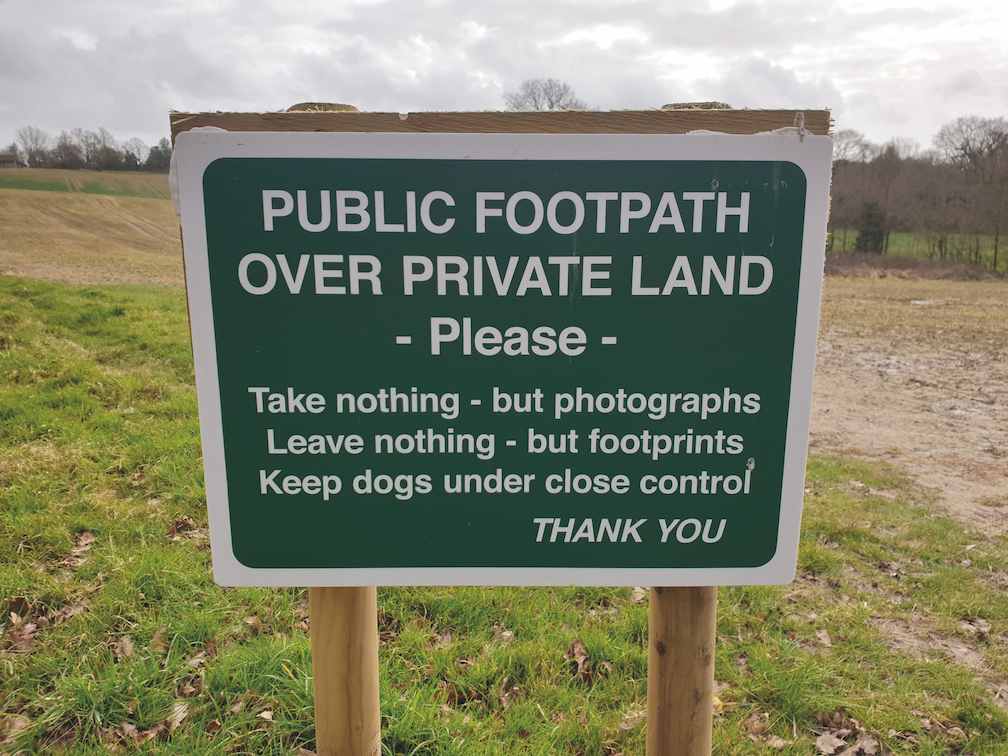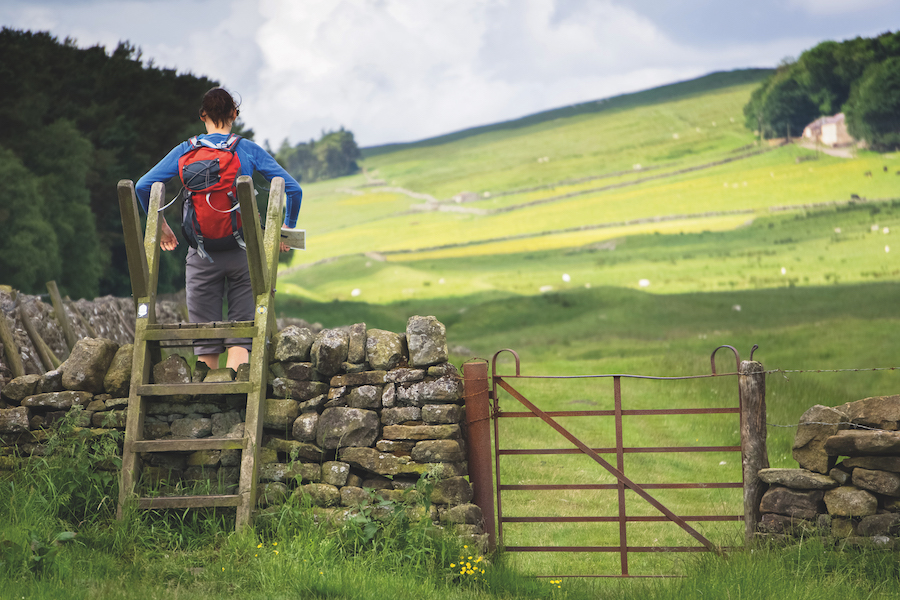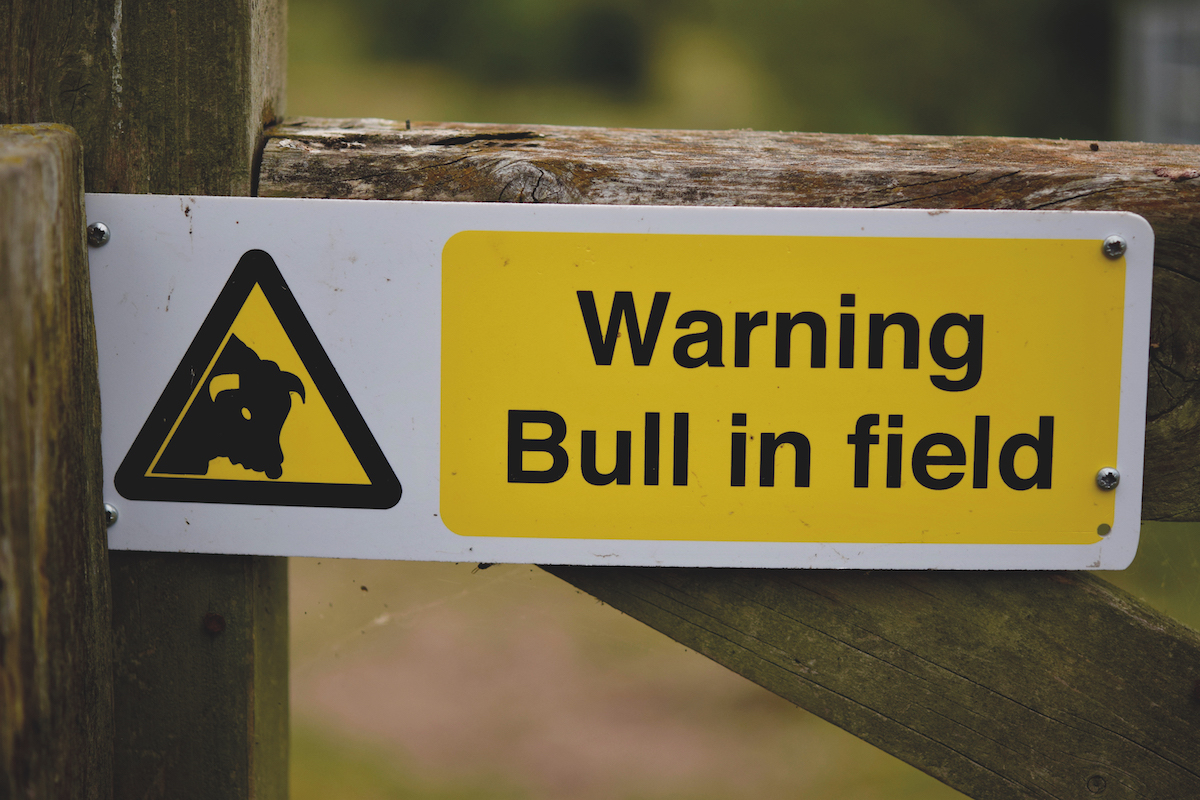Natural England has issued new guidance to encourage landowners to improve access to the countryside – but some campaigners say it doesn’t go far enough.
In the wake of a post-pandemic surge of interest in outdoor activities, Natural England has released new advice to landowners under the Countryside Code.
The recommendations – which include cutting overgrown vegetation from
access routes, restoring rights of way after cultivation, and using friendly language in signs – have been welcomed by both the Ramblers and the British Mountaineering Council. It follows on from a relaunch of the Countryside Code aimed at walkers and countryside visitors in April last year.
“The pandemic has shown that more and more people want to walk in the countryside,” says James MacColl, Head of Policy, Advocacy and Campaigns at the Ramblers. “Farmers and land managers have a really important role to play in welcoming them. This new Countryside Code guidance encourages them to do that, including advice on how they can make rights of way more accessible, and on providing clearer signage.”
Dr Catherine Flitcroft, Access and Conservation Officer at the BMC, said: “[We] welcome the clarity of the code in terms of landowners’ responsibilities towards visitors.”
But some campaigners are less convinced. According to Nick Hayes, one of the activists behind the Right to Roam campaign, the updates are a distraction from a far more fundamental issue: the lack of public access to much of England’s countryside.
‘Quantum shift in access’
He cites the Agnew review, which was commissioned by the Treasury last year
to investigate public access to nature. In a speech last autumn to the House of Lords, Green Party peer Natalie Bennett claimed that the Treasury was pushing for a new approach to access in England. “The Chief Secretary to the Treasury, Stephen Barclay, has reportedly told Whitehall departments that he wants to see a quantum shift in public access to the outdoors,” she said.

A recent sign erected by a landowner in Sussex. Photo: Hanna Lindon
This ‘quantum shift’ is yet to materialise – and Nick argues that Countryside
Code updates focussing on the rights and responsibilities of landowners deflect attention from this broader question.
“The government is desperately looking around at different ways to prove that they are responding to the public’s newfound – or remembered – interest in accessing the countryside,” he says. “The Treasury is basically saying that the NHS is bleeding money through dealing with people’s sedentary lifestyles and we need to do something about access. But the truth is that the one thing off the table from the start is increasing people’s rights of access. [The new updates] are just for optics, to look like they are considering it.”
Rights and responsibilities
It isn’t just access campaigners who are rattled. Some landowners have expressed concern over the new advice, arguing that the focus of the Countryside Code should be on educating visitors to rural areas.
“The pandemic and subsequent lockdowns led to more people getting out and enjoying the countryside, which was to be welcomed,” says Sarah Lee, Director of Policy at the Countryside Alliance. “However, sadly, there were numerous reports of littering in beauty spots as well as reports of horses and livestock being spooked by dogs off the lead, which in turn could have heightened anxiety among some living and working in the countryside.
“It is important to remind visitors that the countryside is a full-time place of work for many.”
For Nick, though, rights and responsibilities come hand in hand. “The Countryside Code only exists because of outdoor access campaigns,” he says. “It wasn’t created by the Countryside Alliance or the NFU – it was people lobbying for greater access to the countryside who were behind it. What that shows is that the more rights we have to access the countryside, the more we feel an increased responsibility towards it.”
Removing obstacles
One group that has welcomed the updated Countryside Code is Disabled Ramblers. The guidance advises landowners to make access ‘easy for visitors with different abilities and needs’. It suggests creating gaps or putting up accessible self-closing gates instead of stiles where there’s a public right of way. Paula Brunt, secretary of Disabled Ramblers, says that small changes like this could help improve accessibility for all.

A walker crossing a stile in Northumberland. Photo: Shutterstock
“While we realise the need for barriers where livestock are concerned, stiles are impossible for the disabled in wheelchairs, or scooters. They are also can be a barrier for families with buggies or the elderly that may be fairly active, but struggle to get over them.”
The advice has proved unpopular with countryside groups, who have expressed concern about cost and trespassing.
But Disability Rights UK says that the law has been clear for 25 years that ‘reasonable adjustments should be made for disabled people’.
“It’s great news that the government is now actively encouraging landowners
to understand a diverse range of access needs and make the relevant changes so the countryside can be enjoyed by everyone,” says Fazilet Hadi of Disability Rights UK.
‘A clown’s cart’
The recommendations, if followed by landowners, could also have implications
for safety and ease of access for all walkers. They include avoiding misleading signage (“such as ‘bull in field’ if it is not true”), making sure trees and overhanging branches are stable, and not keeping animals you know are dangerous in places where there is public access. Landowners can already face legal action if they fail to follow safety advice – a North Yorkshire farmer was recently handed a suspended prison sentence for a safety breach that led to an 83-year-old walker being trampled to death by cows.

The recommendations include avoiding signs like these if they aren’t true. Photo: Shutterstock
Whilst the advice recognises that landowners have rights and responsibilities in relation to access as well as visitors, it’s prompted activists to demand a
more significant overhaul of the Countryside Code.
“The Countryside Code as it stands at the moment in England is in absolute denial,” says Nick. There’s no reference to activities like wild swimming and camping – the Code needs to pretend that people aren’t doing these things, so effectively that leaves us not knowing what is the proper way to do them. It’s a clown’s cart with square wheels, and it simply isn’t built for the 21st Century.”







